Rio 2016: Yuliya Stepanova challenges IOC ruling on doping ban
- Published
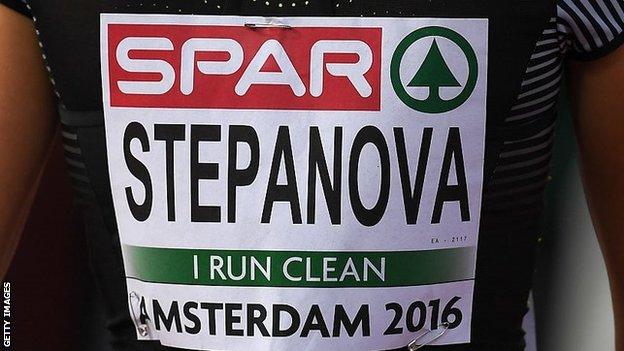
Yulia Stepanova was called a "symbol" for clean sport when she took part at this month's European Championships
Doping whistleblower Yuliya Stepanova has questioned the "unfair" decision by the International Olympic Committee to ban her from the Rio Olympics.
The 800m runner's testimony helped shed light on the scale of doping in Russian sport, and she was to compete under a neutral flag, external in Rio next month.
But the IOC ruled, external that she should not be allowed to take part as she had previously failed a doping test.
Stepanova said the IOC decision was "based on wrong and untrue statements".
In a statement, the 30-year-old claimed the IOC decision would put off future whistleblowers from coming forward and that it contradicted previous decisions by the Court of Arbitration for Sport.
A covering letter to IOC director general Christophe de Kepper called for the organisation "to review their decision on the basis of the information provided".
The IOC on Sunday decided against enforcing a blanket ban from Rio 2016 for all Russian sportspeople. Anti-doping bodies had called for tough action following the release last week of the McLaren report, which detailed widespread, state-sponsored doping in the country.
Instead, the IOC said it would be up to individual sports federations to decide which athletes were eligible for Rio - but that anyone who had been sanctioned for doping should not be able to go.
It also said Stepanova should not be allowed to compete, despite her having earlier won the support of athletics' governing body, the IAAF.
Stepanova and husband Vitaly, a former Russian Anti-Doping Agency official, played a key role in the chain of events that led to the IOC having to rule on Russian sport's place at the Rio Games.
The pair gave evidence to a German documentary maker, external in 2014 that led to an independent report being commissioned by the World Anti-Doping Agency, which uncovered the scale of doping by athletes in the country.
That in turn led to the McLaren report - also commissioned by Wada - which further highlighted Russia's extensive doping.
Stepanova was sanctioned for doping in 2013 and has always claimed she was trapped in a Russian system and had no choice but to comply. The IOC said it took this into account when deciding to ban her from Rio.
She competed at the European Championships earlier this month, where she was described as a "symbol" for clean competitors., external
"Yuliya asked to compete in Rio not to receive an extraordinary benefit, but to simply restore her to the position she would have been in had she never exposed Russia's systemic doping program," her statement added.
- Published25 July 2016
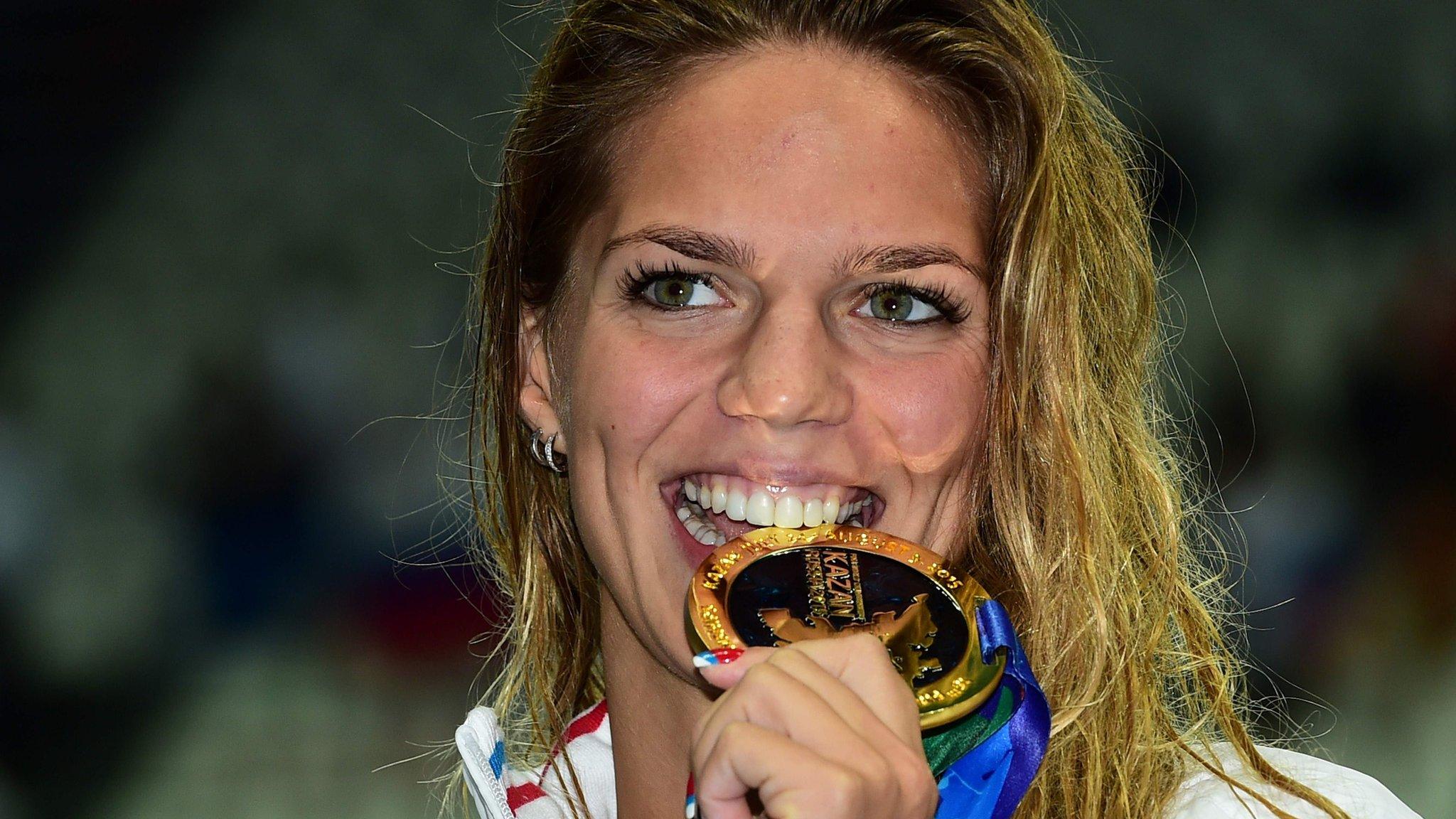
- Published25 July 2016
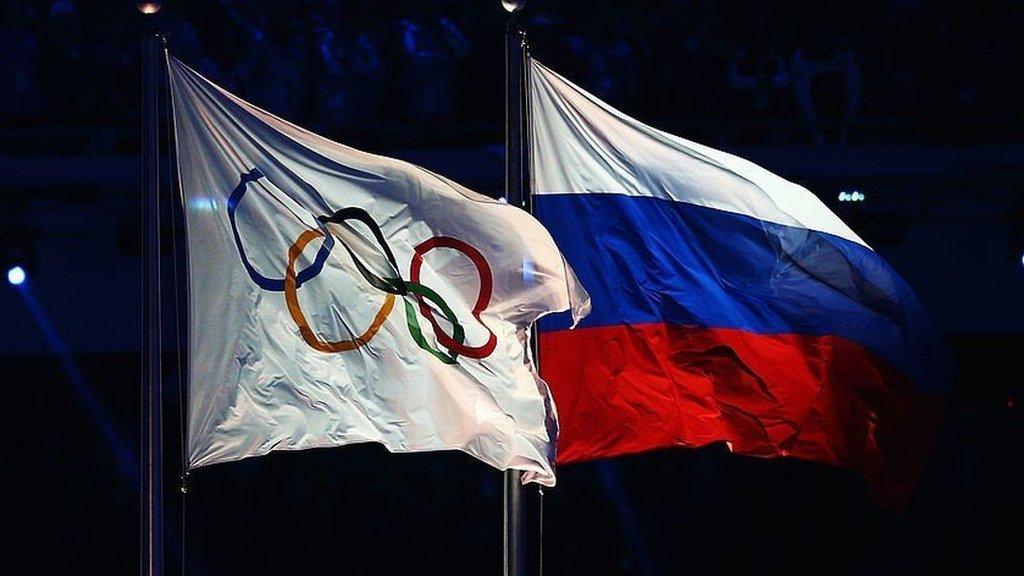
- Published24 July 2016
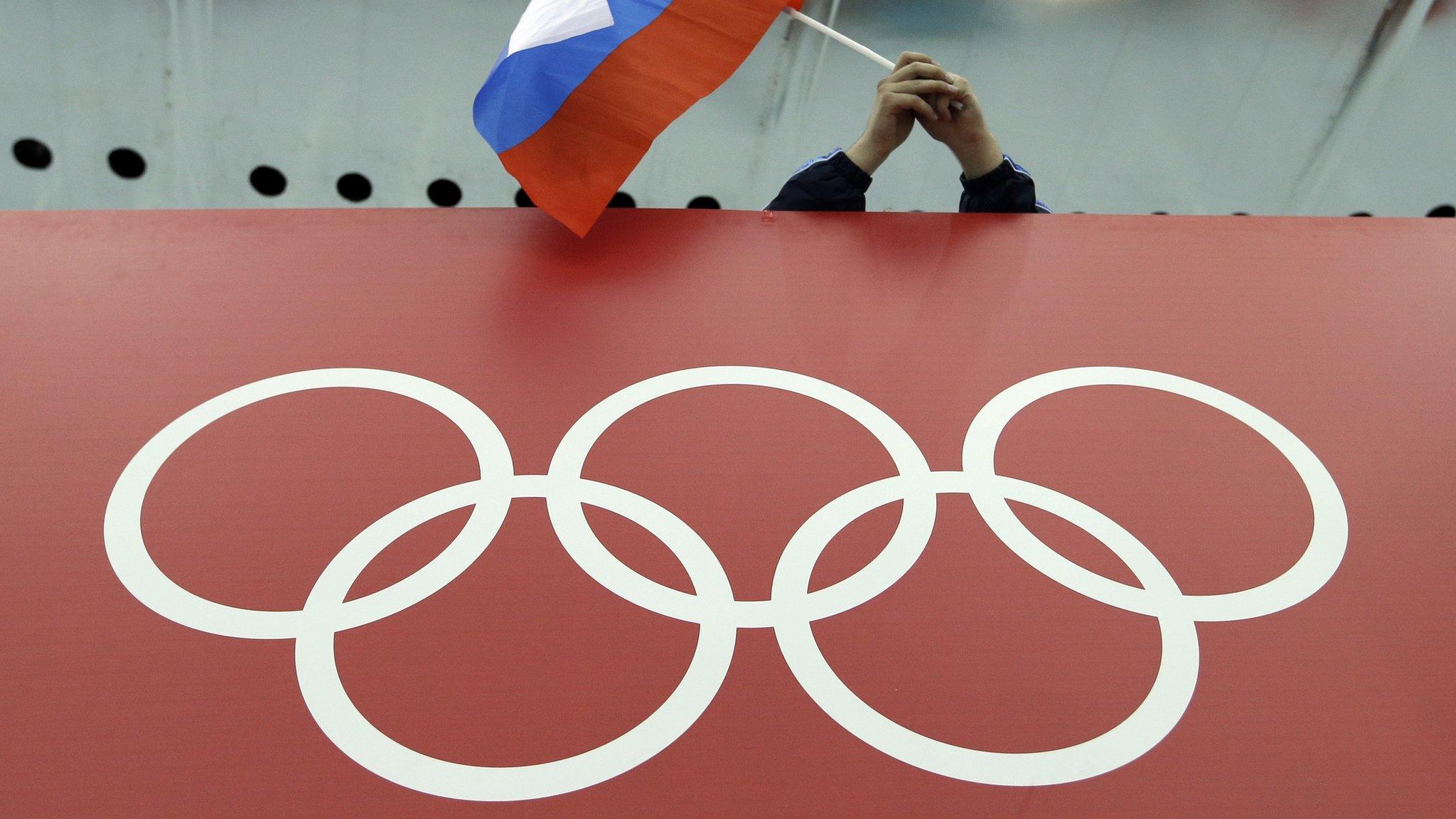
- Published19 July 2016
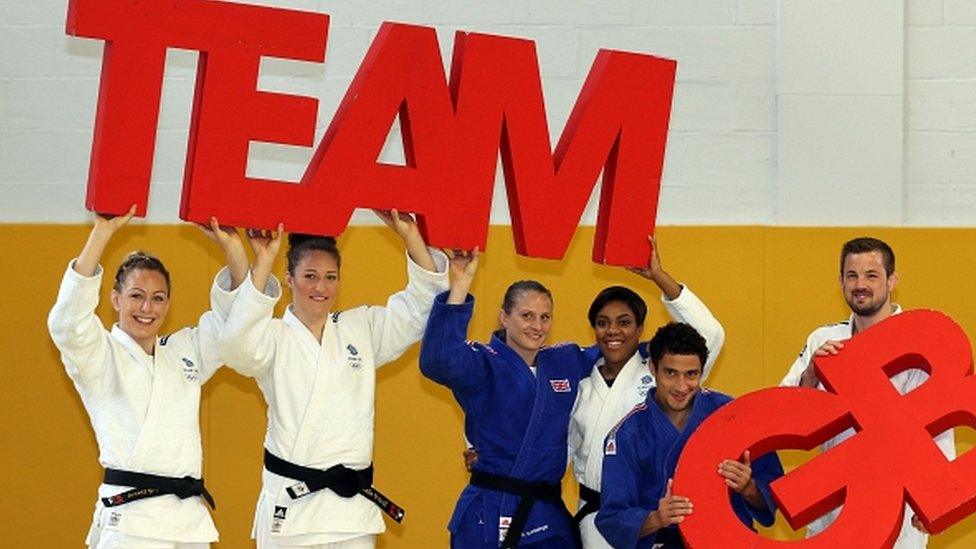
- Published19 July 2016

- Published13 May 2016

- Published3 March 2018
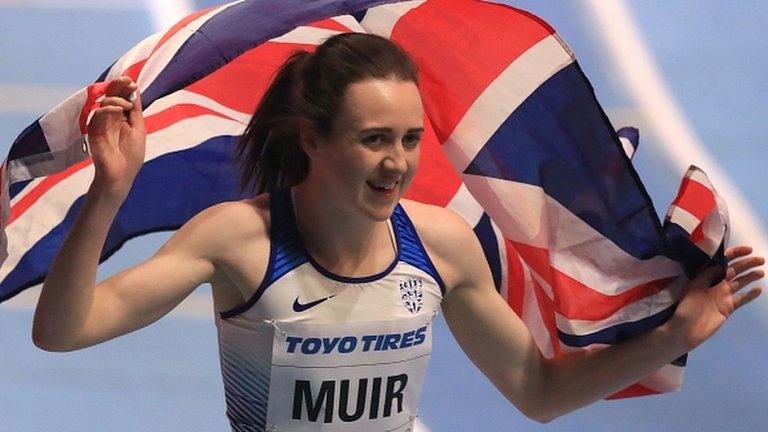
- Published8 February 2019
